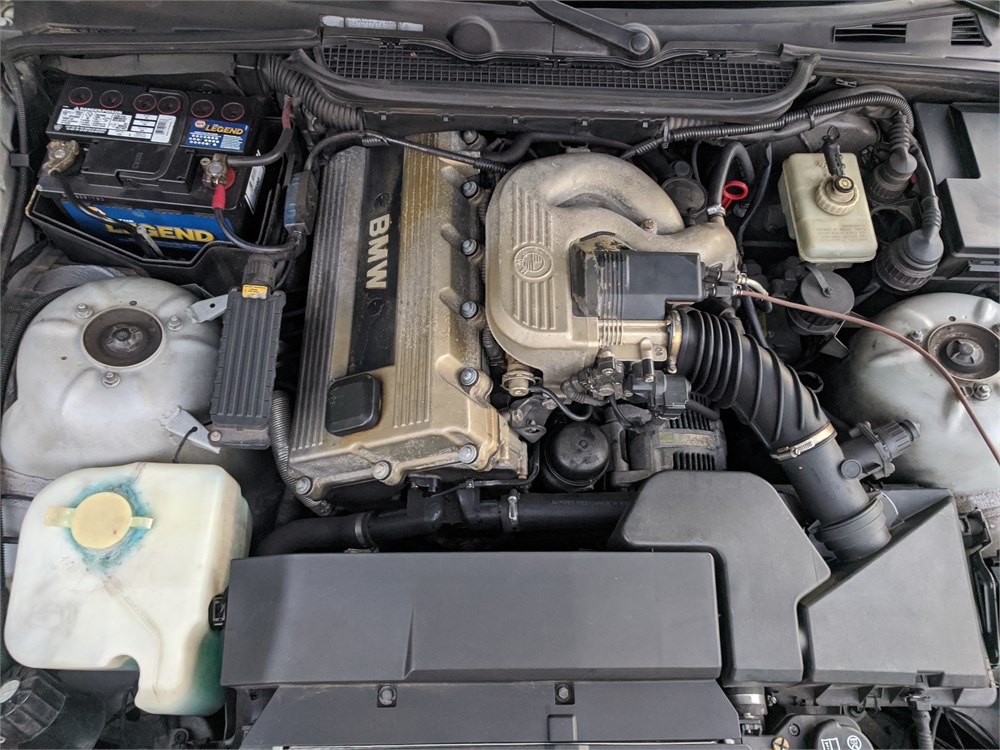The BMW 318ti: A Blend of Design, Comfort, and Efficiency
Vital Factors To Consider for Choosing the most effective Engine for Your Needs
In the realm of choosing the excellent engine to meet your demands, several crucial variables demand thorough factor to consider to guarantee ideal performance and effectiveness. From the nuanced balance between power and performance to the often-overlooked aspects of upkeep and solution needs, each facet plays a crucial role in identifying one of the most ideal engine for your details needs. As the complexity of engine technologies continues to develop, discerning one of the most fitting choice requires a deep understanding of the interplay between different considerations. By exploring the elaborate web of aspects that underpin this decision-making process, a more clear course emerges in the direction of picking an engine that not only fulfills however exceeds your assumptions.
Power and Performance
When assessing engines for optimum efficiency, it is crucial to focus on both power result and performance. Power output gauges the capacity of an engine to generate energy, which straight impacts its efficiency. A high power result is important for requiring jobs such as high-speed needs or heavy-duty applications. It makes certain that the engine can manage the work successfully and effectively. Nevertheless, power alone is not enough; efficiency plays a substantial function in determining the overall performance of an engine. Effectiveness describes how well the engine converts gas into functional power. A much more efficient engine will certainly provide far better gas mileage, reduced exhausts, and reduced operating expense. Striking the appropriate balance in between power outcome and effectiveness is vital to selecting an engine that satisfies your certain needs. It is important to think about variables such as the planned use of the engine, environmental effect, and long-lasting expense ramifications when making this choice. By thoroughly examining both power and performance, you can choose an engine that delivers optimal performance and fulfills your demands efficiently.
Fuel Performance and Economic Climate
Fuel effectiveness refers to the engine's capacity to convert fuel right into energy with minimal waste, straight influencing operating expenses and environmental sustainability. Engines with greater fuel effectiveness not only minimize gas costs yet likewise lower carbon discharges, contributing to a greener procedure.

Compatibility and Application
Taking into consideration the fuel performance and economy of an engine, the following crucial element to address is its compatibility and application within specific functional contexts. Compatibility refers to just how well the engine incorporates with the general system or devices it powers. It includes factors such as physical dimensions, installing options, electric user interfaces, and control systems. Ensuring compatibility is vital to stop problems such as getting too hot, vibrations, or power discrepancies (bmw 318ti).
Moreover, the application of the engine is just as crucial. Different engines are made for particular purposes, whether it be industrial equipment, marine vessels, vehicles, or power generators. Recognizing the designated application enables the selection of an engine that can deliver the required power output, torque, and functional characteristics. A high-revving engine designed for efficiency cars and trucks would certainly not be suitable for heavy-duty building and construction equipment that requires high torque at low rates.
Maintenance and Service Requirements
Upkeep and solution demands play a vital function in guaranteeing the durability and optimal efficiency of an engine. Regular maintenance is vital to stop failures, expand the life-span of the engine, and preserve its efficiency. When selecting an engine, it is very important to think about the manufacturer's advised maintenance schedule and the accessibility of solution facilities or certified service technicians.
Variables such as the frequency of oil adjustments, filter replacements, and total evaluations can substantially affect the engine's performance. Some Continued engines might need even more frequent maintenance based upon their style and usage, while others might have longer intervals in between maintenance checks. It is essential to follow these service requirements to prevent costly repairs and unanticipated downtime.

Price and Spending Plan Factors To Consider
When choosing an engine for a particular application,Budget restraints usually play a substantial function in the decision-making procedure. When taking into consideration the cost and budget plan ramifications of choosing an engine, it is vital to analyze not just the first acquisition rate but additionally the lasting expenses connected with upkeep, gas intake, and potential upgrades or repairs. It is important to strike a balance between the upfront expense of the engine and its overall lifecycle expenses to ensure that the chosen engine stays financially sustainable throughout its operational life-span.
Elements such as gas reliability, performance, and toughness can directly affect the overall price of possession of an engine. While a much more expensive engine might have higher ahead of time prices, it could possibly result in reduced upkeep and fuel expenditures with try this out time, hence supplying better worth in the future. Additionally, thinking about the availability and cost of extra components, in addition to the simplicity of maintenance and service, can aid stop unanticipated monetary strain in the future. By thoroughly evaluating these expense and spending plan considerations, you can make an enlightened choice that straightens with your operational requirements and economic restrictions.
Verdict

Fuel performance refers to the engine's capacity to convert gas into energy with minimal waste, straight influencing operating prices and ecological next page sustainability.Factors affecting gas efficiency consist of engine style, burning performance, and general performance optimization. In addition, picking the appropriate gas type and grade as advised by the engine maker can additionally improve efficiency and extend engine life expectancy.
Engines with excellent utility functions and easily offered components can decrease maintenance costs and decrease the time the engine is out of procedure - bmw 318ti. It is crucial to strike a balance between the ahead of time cost of the engine and its total lifecycle prices to ensure that the selected engine remains economically sustainable throughout its operational life expectancy